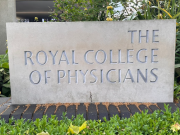
A team of US specialists from the Mayo Clinic in Rochester and of the Vanderbilt University Medical Center in Nashville sought to assess physician’s position about smoking cessation and the electronic cigarette.
Knowledge, beliefs, self-efficacy, and experience/practice patterns have been addressed through a 8 page questionnaire sent to physicians in a wide spectrum of disciplines like primary care, surgical care and pulmonology. A total of 1,500 health professionals have been reached above which 1,286 were eligible to the survey, 561 volunteers sent back their questionnaire, which makes the response rate 44%.
- Above 90% agreed that advising and assisting with smoking cessation is their responsibility;
- 86% advise their patients with smoking cessation;
- 65% assist their patients with smoking cessation more than 75% of the time.
- 58.4% report that they ask their patients about electronic cigarette use at least some of the time.
- 37.9% have at some point recommended electronic cigarettes to their patients that smoke, with 11.5% reporting recommending them at least 25% of the time.
Not confident in their knowledge and in their ability to answer questions on the e-cigarette
It also comes out from this study that numerous are the physicians who discuss about the electronic cigarettes with their patients. Two-thirds report answering to the demand from their patients about electronic cigarettes. In a context of smoking cessation, 30% would endorse vaping and 21% would definitively not recommend it. But in a context of smoking reduction, vaping would be endorsed by 37%. The majority of participants may not be confident either in their knowledge of the e-cigarette or in their ability to answer patient questions about these products.
This may be partly due to the large controversies that animate the different research centres on this topic and, for the rest, to the lack of a clear statement by the authorities about vaping. In the latest developments of the challenges that oppose the FDA to the US vaping industry, the FDA’s declarations clearly show that they don’t trust in a benefit of vaping and rather address the uncertainties of long-term effects behind the precautionary principle. In contrast, the UK’s position is more favourable to vaping with a clear endorsement by health professionals.
“This information serves as a call to regulators and health policy authorities that electronic cigarettes are effectively being viewed and discussed as devices intended to treat nicotine addiction in clinics across the country”, declared Andrew Nickels, the first author of the publication, to the Eurekalert.
Not all physicians are equal when dealing with the topic: the study shows that surgical care providers appear “less confident and less self-efficacious”. These also appear less likely to endorse use of electronic cigarettes. Surgeons and anaesthesiologists, principally, are concerned about the potential effects of nicotine on their surgery and wound healing.
The fear should vanish when reading the recent study that has been carried out by David O. Warner who is also the second co-author of the present study. Dr David O. Warner showed that the use of e-cigarettes was feasible and well-accepted in surgical patients. For patients affected with a lung-cancer, the French pulmonologist Bertrand Dautzenberg contributed to the effort of transparency by publishing with his colleague Daniel Garelik, a state-of-the-art of vaping for caregivers. A reading that should come as a complement of the now famous UK Royal College of Physicians’ report, Nicotine without smoke: tobacco harm reduction.
E-cigarette: A state-of-the-art for caregivers and health professionals
Nickels AS., Warner DO., Jenkins SM., Tilburt J., & Hays JT., 2016. Beliefs, Practices, and Self-efficacy of US Physicians Regarding Smoking Cessation and Electronic Cigarettes: A National Survey. Nicotine & Tobacco Research, ntw194.











